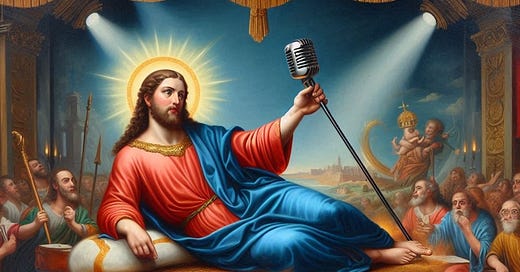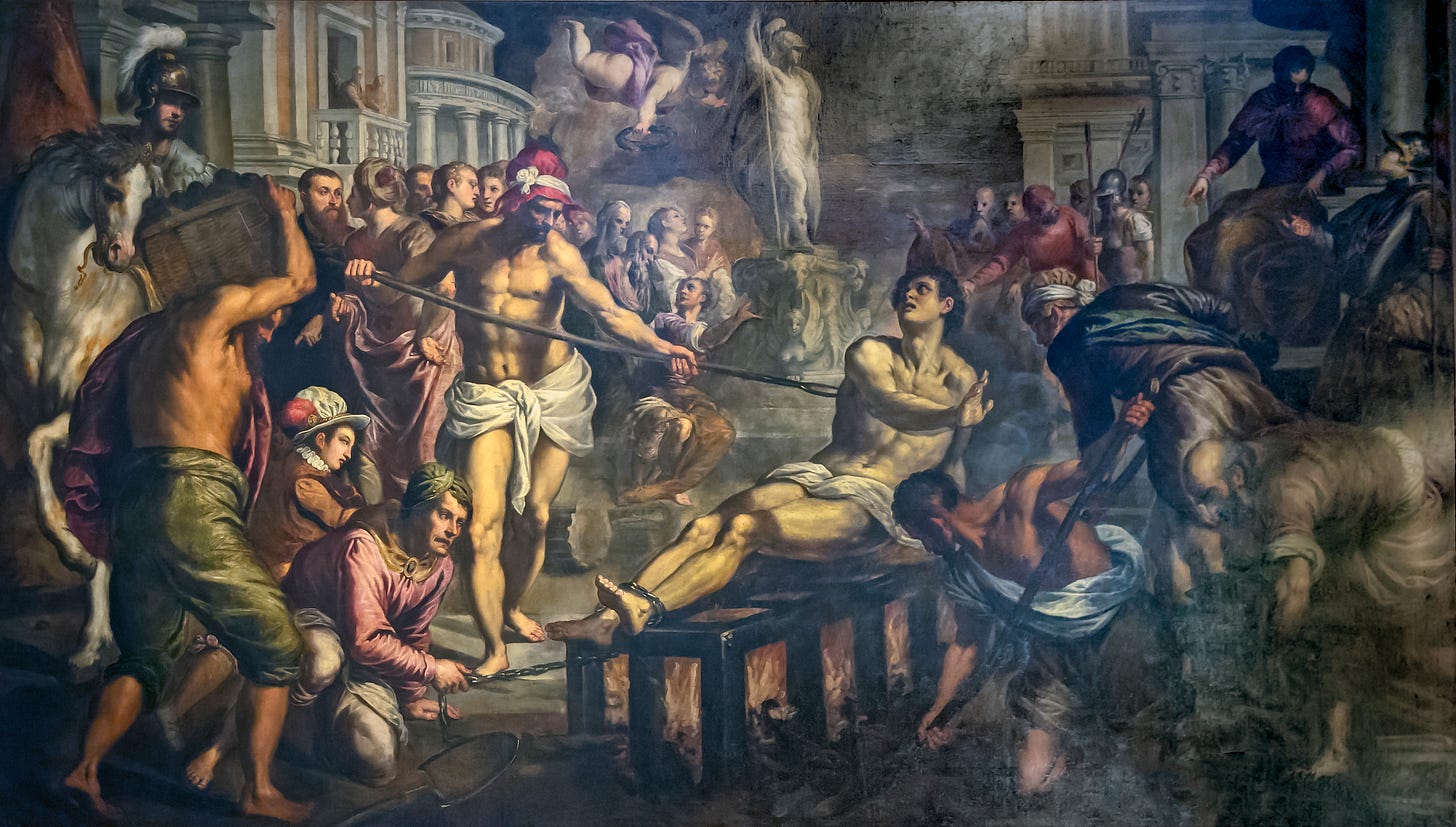To my ear, Saint Lawrence sounds like a terribly English saint. Perhaps it’s because of two famous Edwardians; author DH Lawrence and TE Lawrence, aka Lawrence of Arabia. There are also 245 English churches named after St Lawrence. The only non-Biblical figure with more dedications is St Nicholas (with 436).
Falling on 10 August, St Lawrence’s Day could easily be the date of many English summer fairs. The Priddy Sheep Fair in the Somerset Mendips is one, held on St Lawrence’s Day from 1348 until 1785. There is now an annual folk festival around that time in the village. One can imagine folk songs telling of Lawrence, a poor shepherd who performed miracles on windswept English hillsides.
But there is nothing English about St Lawrence other than, perhaps, his sense of humour. We’ll come to that.
So who was St Lawrence?
St Lawrence - or San Lorenzo – was born in Spain in 225AD. Thirty years later, he found himself in Rome being made one of seven deacons by Pope Sixtus II, and then raised to Archdeacon a little later. This meant Lawrence was in charge of the treasury and the distributions of alms to the poor.
Then persecution came. In 257, Emperor Valerian insisted that Christian clergy made sacrifices to Roman gods. Sixtus II refused and was beheaded along with six deacons. Lawrence was told to hand over the Church’s money. The story is told that he asked for three days to gather it all together, spending that time distributing the money as quickly as possible.
John Foxe takes up the story in his Acts and Monuments, more commonly known as Foxe’s Book of Martyrs, first published in 1563 and a copy placed in every church in England in 1571. This, then, would have been how the English received the story of St Lawrence:
In the meantime, [Lawrence] caused a good number of poor Christians to be congregated. So when the day of his answer was come, the persecutor strictly charged him to stand to his promise. Then valiant Laurence, stretching out his arms over the poor, said, “These are the precious treasure of the church, these are the treasure indeed, in whom the faith of Christ reigneth, in whom Jesus Christ hath his mansion-place. What more precious jewels can Christ have than those in whom he hath promised to dwell? For so it is written, I was hungry, and ye gave me to eat; I was thirsty, and ye gave me to drink; I was harbourless, and ye lodged me. And again, look what ye have done to the least of these, the same have ye done to me.
Because we have been so Christianised by the centuries, we instantly recognise Lawrence’s act as a noble one. But this was, presumably, baffling to the Romans who despised the poor and the afflicted. The idea that any god should dwell in such frail creatures was offensive, even to Roman sensibilities.
Lawrence was not spared execution and soon found himself placed on a griddle. The verdict was:
Away with him; whip him with scourges, jerk him with rods, buffet him with fists, brain him with clubs. Jesteth the traitor with the emperor? Pinch him with fiery tongs, gird him with burning plates… and when the bed is fire hot, on with him; roast him, broil him, toss him, turn him.
Lawrence is accused of ‘jesting’ with the emperor. The jokes continue:
Now let us draw near to the fire of martyred Laurence, that our cold hearts may be warmed thereby…. When this triumphant martyr had been pressed down with firepikes for a great space, in the mighty Spirit of God he spake to the vanquished tyrant:
“This side is now roasted enough, turn up, O tyrant great;
Assay whether roasted or raw thou thinkest the better meat.”
Essentially, St Lawrence joked, ‘Turn me over. This side is done!’
This strikes me as quintessentially English in its humour. The joke was not Foxe’s invention, although it is reminiscent of Latimer’s quip to Ridley as they were burned by Queen Mary:
Be of good comfort, Master Ridley, and play the man; we shall this day light such a candle by God’s grace in England as shall never be put out.
This is why St Lawrence has come to be the patron saint of those who work with open fires: cooks, bakers, brewers and tanners; and those for whom fire is bad news: librarians, archivists, miners, poor people.
And St Lawrence is the patron saint of comedians.
Too funny to be true?
The Church in Rome claims possession of the actual gridiron on which San Lorenzo was flame-grilled, but historians are naturally sceptical of the story. They wonder why Lawrence was not beheaded like his fellow deacons. A mistake in transcription is held responsible. The record should say “passus est”, meaning that "he suffered". But the ‘p’ was lost, so that it read “assus est”, meaning “he was roasted." Personally, I find this typo theory just as funny.
If you want to celebrate St Lawrence’s Day, why not tell a joke? You could also look to the heavens. The meteor shower of the Perseids often begins around the time of St Lawrence’s Day, the shooting stars known as ‘The fiery tears of St Lawrence’. The 12th August is your best bet of seeing them, I’m told.1
Let’s give the final word to Foxe:
Christians, sleepeth in peace, and reigneth in glory. The God of might and mercy grant us grace, by the life of Laurence to learn in Christ to live, and by his death to learn for Christ to die. Amen.
Fun Family Listening
If you need some family listening for the car that’s a blend of Bible, comedy and music, why not give the Faith in Kids 4 Kids podcast a go? You can do that HERE.
p203 The Seasons, Nick Groom







Brilliant